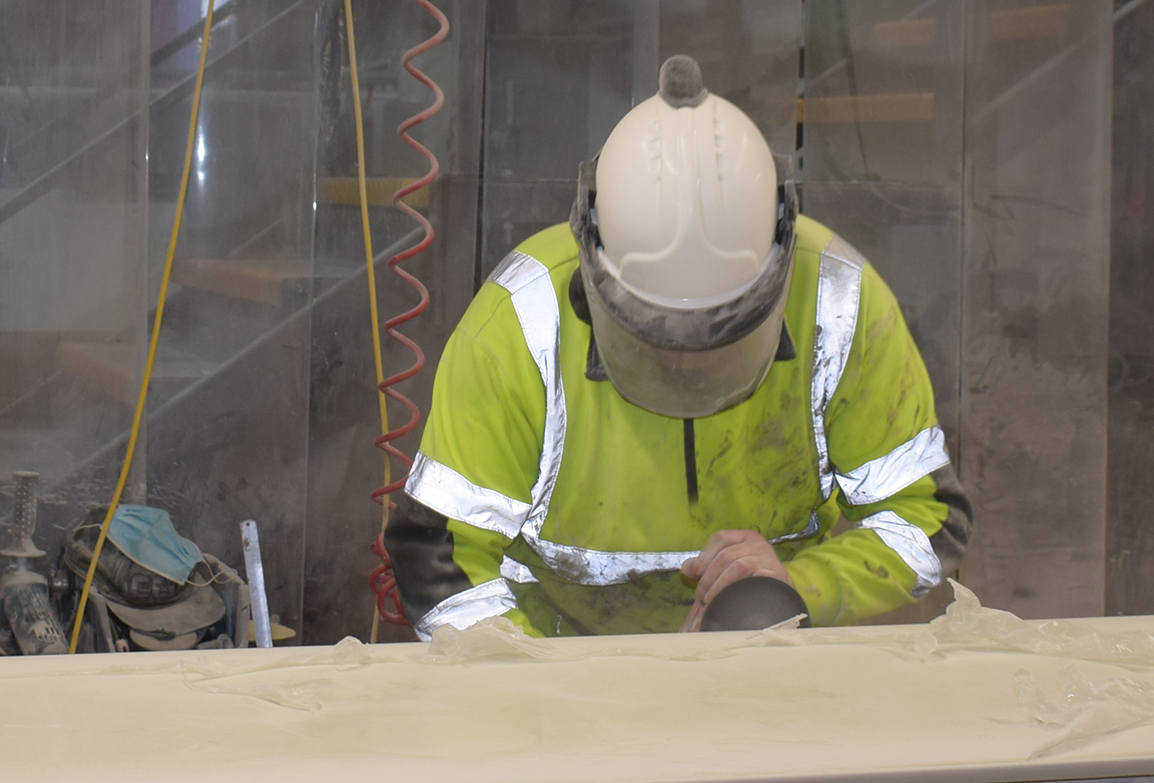The Health & Safety Executive (HSE) is warning companies to act now to protect employees from fatal lung diseases resulting from exposure to respirable crystalline silica (RCS) dust.
It says it will be focusing its inspections in October on companies where RCS could be a problem, which includes stone companies such as worktop fabricators where high silica content materials such as granite, engineered quartz and ceramics are used.
HSE warns that if RCS is breathed in, the particles can cause irreversible lung disease that can be fatal.
Every year, around 12,000 people in Great Britain die from work-related lung diseases linked to past exposure to hazardous substances at work.
These deaths are preventable if exposure to the risks is controlled effectively.
By breathing it in, you can develop the following lung diseases:
- Silicosis
making breathing more difficult and increasing the risk of lung infections. Silicosis usually follows exposure over many years, but extremely high exposures can lead rapidly to ill health - Chronic obstructive pulmonary disease (COPD)
a group of lung diseases, including bronchitis and emphysema, resulting in severe breathlessness, prolonged coughing and chronic disability. It can be very disabling and is a leading cause of death - Lung cancer
Heavy and prolonged exposure to RCS dust can cause lung cancer. When someone already has silicosis, there is an increased risk of lung cancer.
Watch the HSE short video on silicosis, where HSE’s Chief Medical Advisor, Professor David Fishwick, explains more about this disease.
Employers have a legal duty to put in place suitable arrangements to manage health & safety and comply with the Control of Substances Hazardous to Health (COSHH) Regulations 2002.
In October, HSE inspectors will be checking that companies understand the risks associated with RCS inhalation and have effective controls in place to keep workers safe.
HSE has refreshed its silica guidance for stone companies. Click on the links below to download it:

